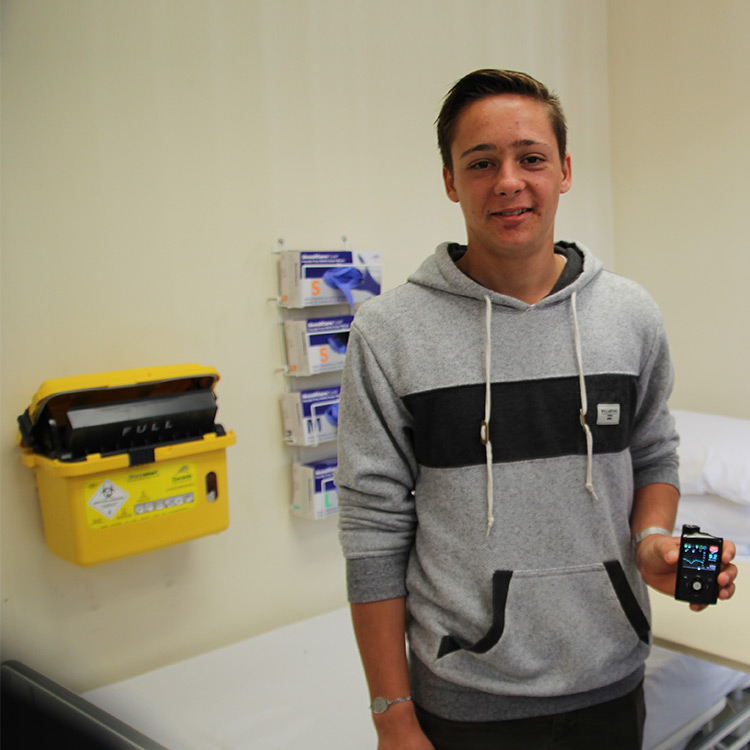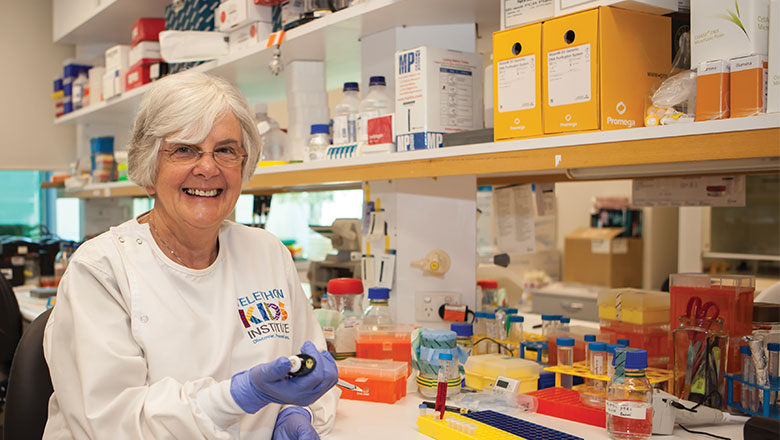Search

News & Events
How to support a friend who has type 1 diabetesClinical psychologist from the Children's Diabetes Centre Dr Keely Bebbington has some top tips on how to support a friend who has type 1 diabetes.

News & Events
Local researchers lead biggest ‘artificial pancreas’ outpatient studyThe Children’s Diabetes Centre at The Kids Research Institute Australia is leading the longest and largest at-home trial of a hybrid closed-loop insulin pump system.

News & Events
A new approach for research with Aboriginal communitiesWinning the support of a remote Aboriginal community paved the way for a pioneering genetics study.
Research
Effect of sensor-augmented insulin pump therapy and automated insulin suspension vs standard insulin pump therapy on hypoglycemiaSensor-augmented insulin pump with automated low-glucose insulin suspension has the potential to reduce the incidence of major hypoglycemic events.
Research
Hypoglycaemia, fear of hypoglycaemia and quality of life in children with Type 1 diabetes and their parentsTo evaluate the association between fear of hypoglycaemia, episodes of hypoglycaemia and quality of life in children with Type 1 diabetes and their parents.
Research
Spatial and temporal variation in type 1 diabetes incidence in Western Australia from 1991 to 2010: Increased risk at higher latitudes and over timeThis study analysed spatial and historical variation in childhood incidence of type 1 diabetes mellitus (T1DM) among Western Australia's 36 Health Districts...
Research
Endocrine and metabolic consequences due to restrictive carbohydrate diets in children with type 1 diabetes: An illustrative case seriesThe promotion of a low carbohydrate diet in media is in contrast to published pediatric diabetes guidelines that endorse a balanced diet from a variety of foods
Research
Continuous Glucose Monitoring Adherence: Lessons from a Clinical Trial to Predict Outpatient BehaviorContinuous glucose monitoring adherence and patterns of use are individualized
Research
Exercise management in type 1 diabetes: A consensus statementThis Review provides an up-to-date consensus on exercise management for individuals with type 1 diabetes who exercise regularly.
Research
Ultraviolet radiation, Vitamin D and the development of obesity, metabolic syndrome and type-2 diabetesEmerging findings suggest a protective role for ultraviolet radiation (UVR) and sun exposure in reducing the development of obesity and cardiometabolic dysfunction, but more epidemiological and clinical research is required that focuses on measuring the direct associations and effects of exposure to UVR in humans.
